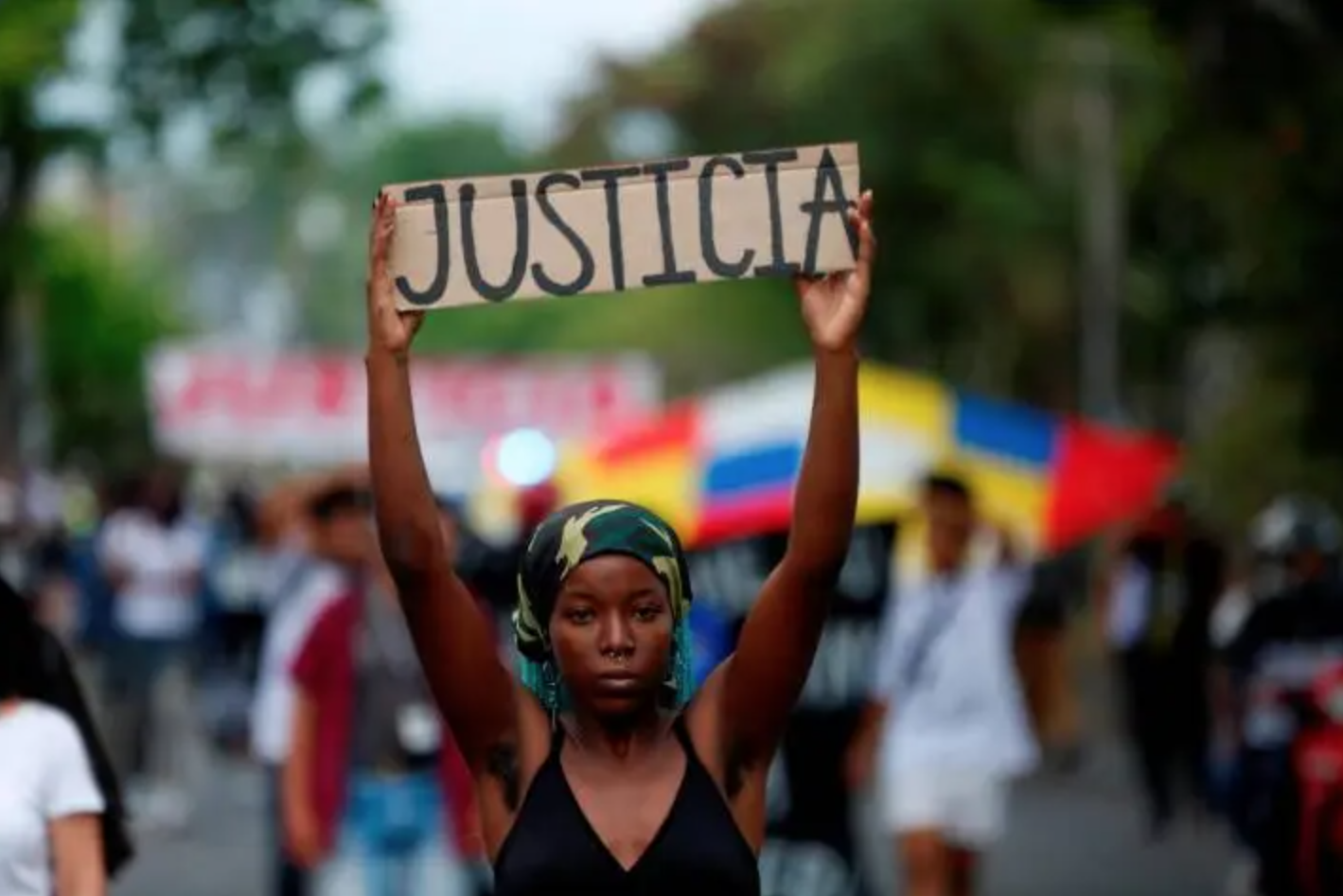July 25 is the International Day of Afro-Latin American, Afro-Caribbean and Diaspora Women. On that date in 1992, in the Dominican Republic, a hundred Afro-descendant women from Latin America held their first regional meeting in protest against the white feminist movement that excluded them from its events. There, the Network of Afro-Latin American, Afro-Caribbean and Diaspora Women (RDMAAD) was formed, which is now in its 30th year.
It is a space for the empowerment of Afro-descendant women for the construction and recognition of equitable, just, and multicultural democratic societies, free of discrimination, sexism, and patriarchalism.
This network is perhaps the most powerful articulation of the Afro-descendant social movement in the Americas. It is composed of organizations in 22 countries in the region, with hubs in the United States, Spain, and France. It also operates as a transnational organization, with a general coordinator, six sub-regional committees, and national committees by country.
In these 30 years of struggle, focused on improving the living conditions of the Afro-descendant population, the network has been used as a strategy to unveil the multiple discriminations to which women are subjected, denouncing the structure of relations of domination and inequality resulting from the intersection of gender, race, ethnicity, and social classes.
The network, in the public sphere and in the political field, has managed to position repertoires that demand an intersectional view of women’s issues. The vindication of their rights demands that States implement effective public policies and programs to eradicate social exclusion.
What is the real situation of these women?
Although the presence of politicians such as Epsy Campbell in Costa Rica and Francia Márquez in Colombia shows the growing political protagonism of Afro-Latin American women, as evidenced by various RDMAAD studies, the conditions of exclusion, inequality and citizen deficit of this group are multiple. Since the network was constituted, important recognitions have been achieved, but they are not reflected in social achievements.
According to Vicenta Camusso, an Afro-Uruguayan activist, the indicators of the socioeconomic situation and living conditions of Afro-descendant women remain unchanged. On the one hand, there are political advances. Still, on the other, there are few social advances and even setbacks, especially if we consider the radicalization of anti-black racial discrimination.
For Camusso, the complex reality of Afro-descendant women can be summarized in the following problems: a) limited access to education, with gaps that are not narrowing; b) high reproductive parity at an early age; c) high entry into the labor market, with early entry and late exit; c) high participation in domestic service and cleaning without labor guarantees; d) physical violence against them and their children; e) increase in the number of young women in prisons.
These and other structural problems suffered by Afro-descendant women are summarized in the need to understand that racism, even after slavery, is a powerful indicator of disparity.
In some countries of the region, society is reluctant to admit the existence of racism as a factor of inequality along with sexism, classism, patriarchalism and coloniality. This is particularly true in environments such as the Caribbean, where the existence of racism is institutionally denied, a concrete form of this denial being the non-inclusion of the race/ethnicity variable in censuses and household surveys.
According to ECLAC, in the Caribbean, where the percentage of Afro-descendant population is large, the lack of statistical data cross-referenced by ethnicity/race impedes the understanding of the realities experienced by Afro-descendant women, such as those related to unemployment, lack of access to credit, scarce access to productive land, little political participation; more presence in higher education, but less participation in qualified employment and decision-making positions. Other problems faced by these women have to do with femicide and low access to justice. They also highlight the loss of ancestral territories and the reduced life expectancy in relation to national averages.
For Claudia Mosquera, a professor at the National University of Colombia, the physical, psychological, and moral violence suffered by thousands of Afro-descendant women in Colombia as a result of the internal armed conflict demonstrates that the Afro-descendant woman’s body continues to be the object of solid discrimination and domination. In these realities, the woman’s body becomes the spoils of war, giving it the form of sexual slavery by the armed actors of the conflict.
Mosquera adds that another aspect has to do with the racial violence that operates strongly against Afro-descendant women and excludes them from labor markets with high economic possibilities, political domination, and prestige. This happens, for example, in Panama, as revealed by the household surveys of the National Institute of Statistics.
In Cali, studies by Del Valle University have demonstrated the existence of a perverse relationship between domestic service and the high levels of schooling of Afro-descendant domestic workers. It has even been shown that mulatto women fare better than those referred to as “black women”. In addition, Afro-descendant women have a greater burden of dependents, a situation that limits their possibilities for savings and growth.
According to Rocio Muñoz, an activist in the Afro-Peruvian movement, and recent studies by the GRADE consulting firm, Afro-Peruvian women also endure a scenario of intersectional oppression. In addition, the darker the skin tone, the more racism against the Afro-descendant woman’s body increases.
For instance, in Lima, it has been observed that identity by race/ethnicity ends up being a variable that deepens the poor conditions in which women live in relation to their class, gender, and subalternity. In this context, women identified as “black” or “very black” have less schooling, less access to health services, more heavy work, and less pay.
The social, economic, and political reality of Afro-descendant women must be interpreted in terms of intersecting inequalities, both by ethnicity/race and by gender and class. Furthermore, as advocated by REDMAAD, this complex reality demands radical institutional attention, leading to the establishment of public policies with a differential approach, understood as affirmative actions and reparations, which combat the problem in an essential way.
In this context, there is a growing need for policies that address the problems experienced in rural and urban territories, in spaces of political participation, that is, in all scenarios where the reproduction of male power over the bodies of Afro-descendant women takes place.
Translated from Spanish by Janaína Ruviaro da Silva













